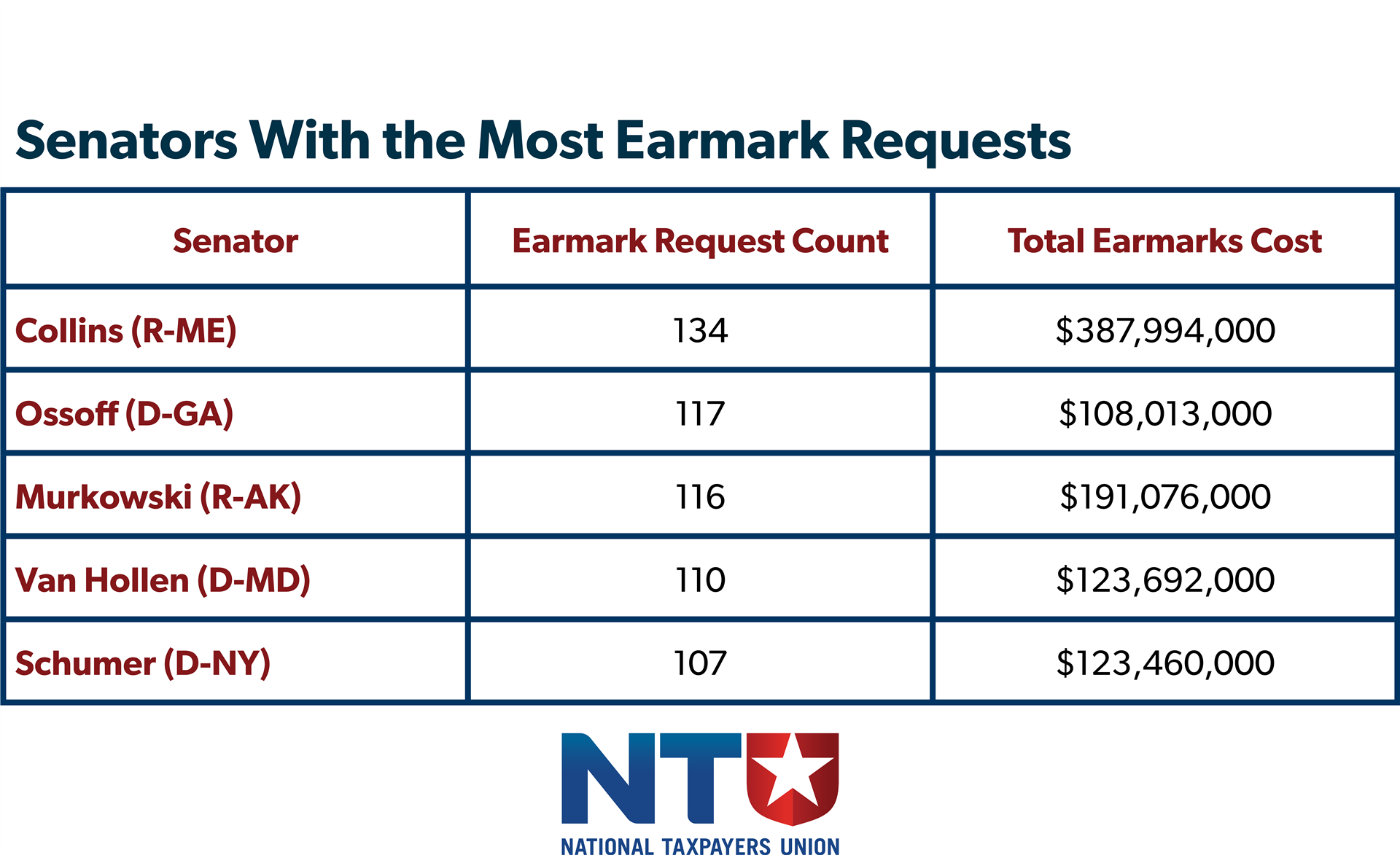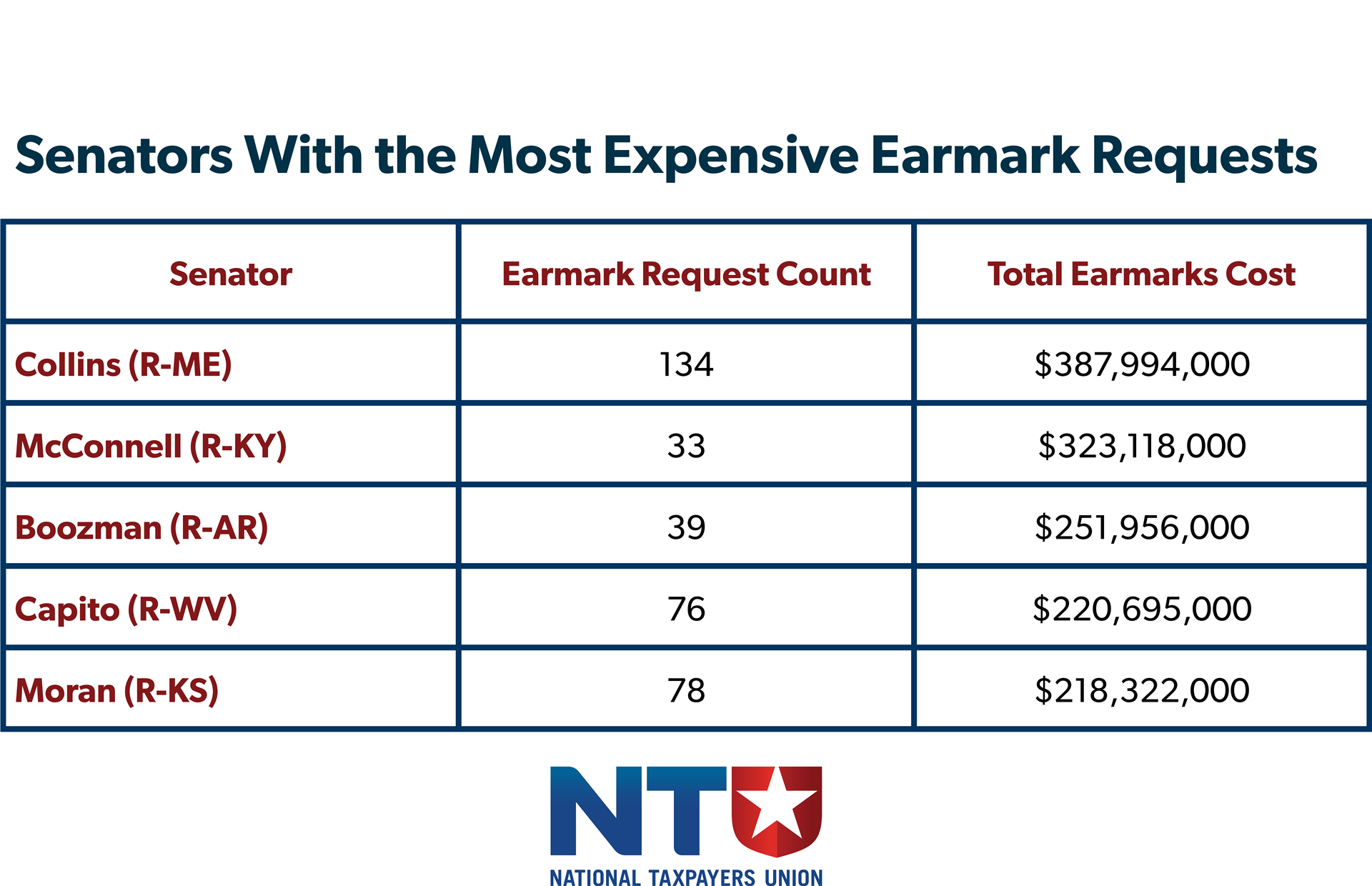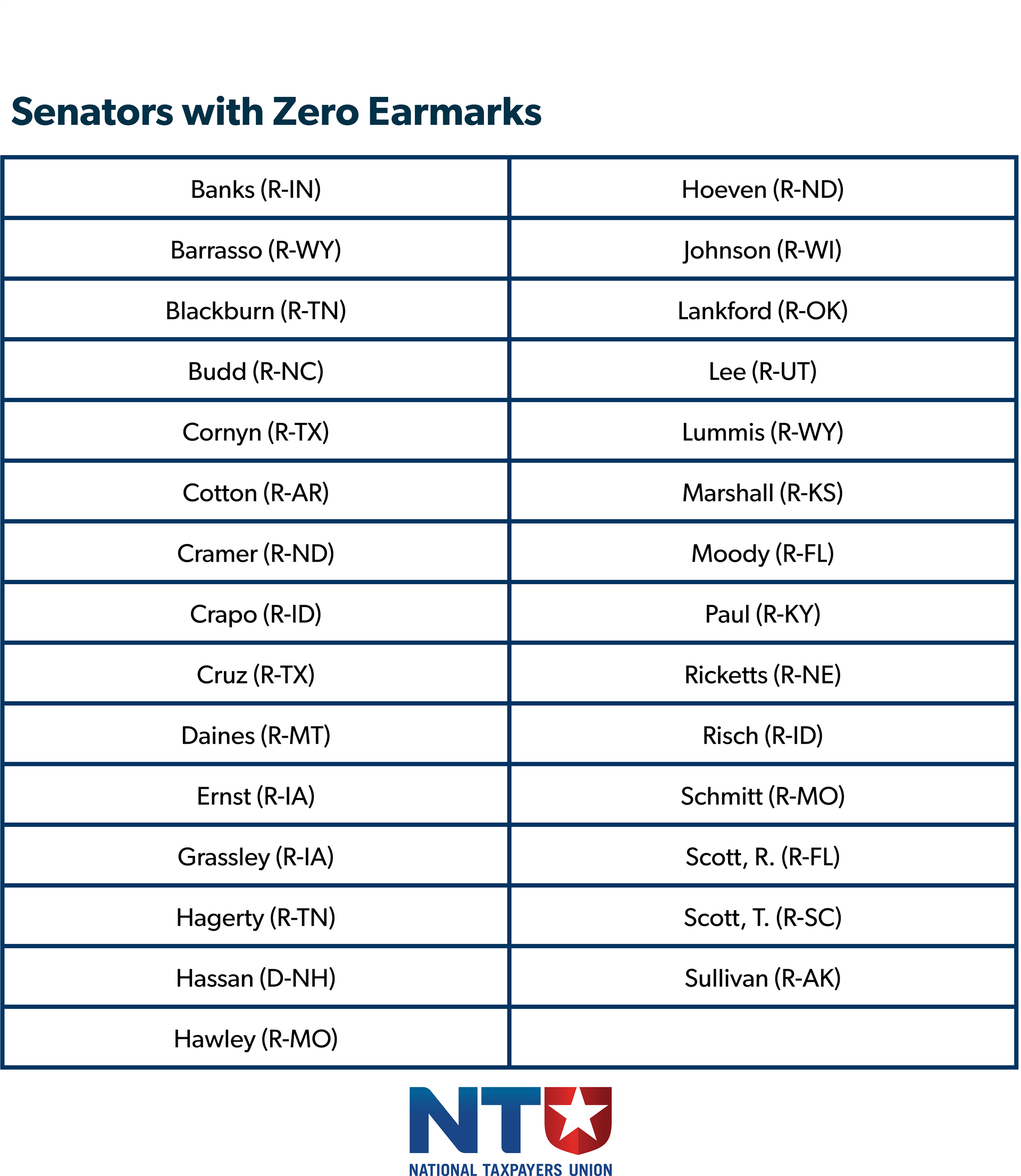With the federal government reopened after weeks of Democratic obstruction, the Senate is working to advance full-year funding bills. That’s what’s on the docket this week as the upper chamber proceeds on a handful of appropriations for over a half-dozen departments and agencies that only received short-term funding through late January. But taxpayers beware: billions of dollars worth of boondoggle were tucked in at the 11th hour.
National Taxpayers Union and its research arm, National Taxpayers Union Foundation, combed through each of the four appropriations bills and tallied all the earmarks (the Department of Defense appropriations bill included no earmarks). In total, we tallied 2,880 earmarks totalling $5.25 billion in Fiscal Year 2026. This is money directed by members of Congress to their state to fund pet projects.
While they only constitute a small percentage of overall federal spending, earmarks nonetheless have funded a significant number of wasteful projects and, for some lawmakers, proved to be an irresistible opportunity for corruption and influence peddling.
In many cases, senators from the same state will join together in support of an earmark. Among the total earmarks, 1,104 have 2 requestors each and 2 earmarks had 4 requestors. Among the total number of requests (3,990), Democrats did most of the asking, filing 70.5% of the requests (2,814 in total), though Republicans made a total of 1,079 of their own (27% of the total). The two independent Senators requested a total of 97 earmarks for the remainder. Across the four appropriations bills that the Senate might roll into a minibus this week, earmarks include:
Commerce, Justice, Science, and Related Agencies Appropriations Act
537 earmarks totaling $772,000,000
This includes:
$129,000 for Bluefin Tuna research in Maine
$1,500,000 for better salmon counting methods in Alaska
$1,000,000 for spaceport training in California
$500,000 to study sediment management in Alabama
Department of Interior, Environment, and Related Agencies Appropriations Act
405 earmarks totalling $733,000,000
This includes:
$2,000,000 for a fish passageway in Rhode Island
$350,000 to refurbish an elephant-shaped building in New Jersey
$500,000 for a theatre club near Billionaire’s Row in Midtown Manhattan
$250,000 to study seeds in Hawaii
Departments of Labor, Health and Human Services, and Education, and Related Agencies Appropriations Act
999 earmarks totaling $1,404,000,000
This includes:
$750,000 for the Lincoln Center in Manhattan
$2,000,000 for the AFL-CIO in Michigan
$730,000 for renewable energy job training in Alaska
$200,000 for squash courts in Baltimore, Maryland
Transportation, Housing and Urban Development, and Related Agencies Appropriations Act
939 earmarks amounting to $2,343,500,000
This includes:
$600,000 for electric vehicle chargers in New Mexico
$1,000,000 for the Atlanta Braves Foundation
$42,000,000 for a school district in South Dakota
$7,000,000 for a sports arena in West Virginia
Earmarks are the epitome of wasteful spending in Washington. Since 1991, earmarks have cost taxpayers over $460 billion for pet projects—including the infamous “bridge to nowhere,” a $500,000 teapot museum, and $50 million for an indoor rainforest in Iowa.


Thankfully, many congressional leaders, including Senator Joni Ernst (R-IA) and Representatives Warren Davidson (R-OH) and Ralph Norman (R-SC) have been leading the charge to end this terrible practice.

A $5 billion increase in spending is peanuts compared to the $1.1 trillion deficit our government is running, but it is emblematic of the larger problem. In Washington, spending only increases over time. The result is years of billions of dollars added up that will need to be paid back with interest, which is how we’ve reached the situation our country is in today.
Elon Musk’s Department of Government Efficiency spent months highlighting wasteful spending, much of which was cancelled or clawed back via rescissions. Yet, Republicans in Congress who use earmarks are undermining this important work and commitment to fiscal responsibility.

